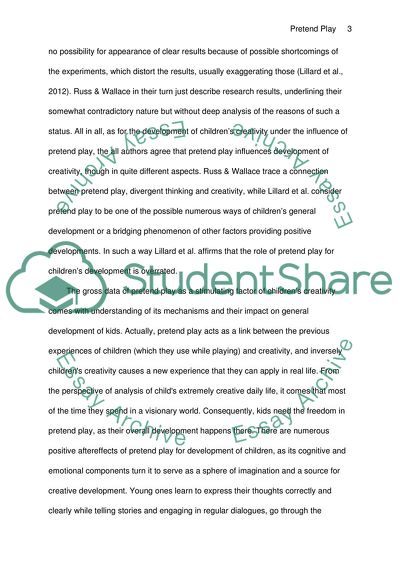Cite this document
(Influence of Pretend Play on Development of Childrens Creativity Coursework, n.d.)
Influence of Pretend Play on Development of Childrens Creativity Coursework. https://studentshare.org/psychology/1876595-ritically-evaluate-the-claim-that-pretend-play-enhances-childrens-creativity-using-empirical-evidence-to-support-your-argument
Influence of Pretend Play on Development of Childrens Creativity Coursework. https://studentshare.org/psychology/1876595-ritically-evaluate-the-claim-that-pretend-play-enhances-childrens-creativity-using-empirical-evidence-to-support-your-argument
(Influence of Pretend Play on Development of Childrens Creativity Coursework)
Influence of Pretend Play on Development of Childrens Creativity Coursework. https://studentshare.org/psychology/1876595-ritically-evaluate-the-claim-that-pretend-play-enhances-childrens-creativity-using-empirical-evidence-to-support-your-argument.
Influence of Pretend Play on Development of Childrens Creativity Coursework. https://studentshare.org/psychology/1876595-ritically-evaluate-the-claim-that-pretend-play-enhances-childrens-creativity-using-empirical-evidence-to-support-your-argument.
“Influence of Pretend Play on Development of Childrens Creativity Coursework”. https://studentshare.org/psychology/1876595-ritically-evaluate-the-claim-that-pretend-play-enhances-childrens-creativity-using-empirical-evidence-to-support-your-argument.


